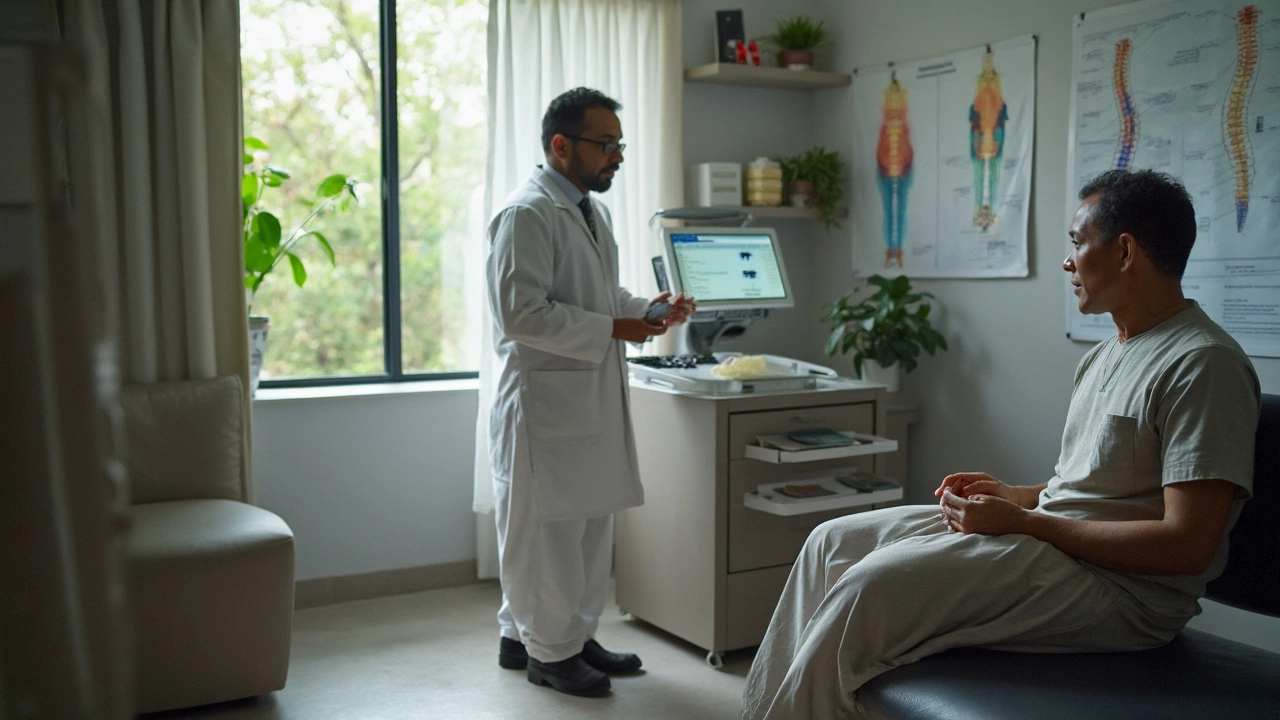Orthopedic Hospital: Your Practical Guide for India
Walking into an orthopedic hospital can feel overwhelming, especially if it’s your first time. You might wonder what tests will be done, how much you’ll pay, and whether the doctors are the right fit. This guide breaks down the whole process in plain language so you can walk in confident and leave with a clear plan.
First Visit Essentials
When you arrive, the front desk will ask for your ID, any previous scans, and a list of medicines you’re taking. Bring a notebook; jot down the doctor’s name, the purpose of each test, and any instructions you get. Expect a brief interview about your pain, how long it’s lasted, and what makes it better or worse. The doctor will then decide if you need X‑rays, an MRI, or a simple physical exam.
Most hospitals in India schedule the imaging on the same day, but larger centers might ask you to return for a separate appointment. If you’re asked to wait for results, ask how long it usually takes and whether they will call you or send a message. Knowing the timeline helps you plan work and family commitments.
Choosing the Right Hospital
Not every orthopedic hospital is alike. Look for places that have a dedicated orthopedics wing, modern imaging equipment, and surgeons who specialize in the joint you need help with. Check online reviews, but also ask friends or family if they’ve had good experiences. Accreditation from bodies like NABH or ISO adds a layer of quality assurance.
Don’t forget to ask about the surgeon’s experience. A doctor who performs a high volume of knee replacements each year is likely more comfortable with the procedure than someone who does it rarely. If you can, meet the surgeon for a quick consult before committing to surgery.
Cost is a big factor. In India, a basic orthopedic consultation can range from ₹500 to ₹2,000, while advanced procedures like hip replacement may cost ₹1.5 lakhs to ₹3 lakhs, depending on the implant brand and hospital tier. Ask for a detailed quote that includes surgeon fees, implant costs, anesthesia, and post‑op physiotherapy. Some hospitals offer package deals that bundle everything, which can save you money.
After you’re done with the surgery or treatment, follow‑up care is crucial. Most hospitals schedule a check‑up a week after discharge, then monthly for a few months. Physical therapy is usually part of the recovery plan; ask whether the hospital provides in‑house physiotherapy or if you need to go elsewhere.
Quick tip: keep all your medical documents in one folder – scans, prescription receipts, discharge summary – and store digital copies on your phone. Having everything handy makes future consultations smoother and helps you track expenses for insurance claims.
By knowing what to expect, asking the right questions, and comparing a few hospitals, you can make an informed choice that fits your health needs and budget. Orthopedic care is a partnership between you and the medical team, so stay proactive and don’t hesitate to speak up if something feels unclear.

Best Hospital for Orthopedic Surgery: What Really Matters?
Picking the right hospital for orthopedic surgery can shape your recovery and results. This article breaks down what makes a hospital stand out for joint, bone, and muscle procedures. You'll find out about key features to look out for, expert insights, and mistakes to avoid. If you're looking for proven tips and real details, this guide makes the decision a whole lot easier. Don't guess with your health—get the facts before you book that appointment.

Strongest Drugs for Nerve Pain: What Really Works?
Curious about the strongest drugs for nerve pain? This article digs deep into what medications actually help severe nerve pain and why some options are more powerful than others. You'll get the facts on prescription drugs, their side effects, and how doctors choose the best treatment. Learn what to expect if you're dealing with tough neuropathic pain. Find out how to talk to your orthopedic doctor about your options.

What is a Back Doctor Called? Understanding Spine Specialists
If you're dealing with back pain, you might wonder what type of doctor to see. Known as spinal or orthopedic specialists, these doctors focus on diagnosing and treating ailments related to your spine. From simple posture issues to complex spinal surgeries, they handle a wide range of problems. Discover how their expertise can help alleviate back pain and improve your quality of life.

Understanding the Most Common Orthopedic Emergency: Fractures
Orthopedic emergencies demand fast and effective intervention to prevent long-term damage. Among these, fractures, specifically of the hip and lower limb, are the most frequent occurrences due to accidents, falls, and sports injuries. This article delves into why these fractures are so common, highlights the essential steps for initial management, and discusses the role of immediate care in promoting better recovery outcomes. Readers will gain insights into risk factors, prevention strategies, and the importance of seeking timely medical assistance.

Dental Implants: What They Don't Tell You
May, 24 2025

New Drug Revolutionizing Type 2 Diabetes Treatment
Feb, 20 2025


